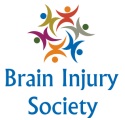Music and Your Brain: A Deadly Lullaby of Distracted Driving

Once the first car radio was rolled out by Gavin Corporation (Motorola) in 1930, there was no turning back. Since then, we’ve been accompanied on our drives by music from retractable record players, 8-track and cassette players, satellite radio, MP3 players, and iPODs. Technology doesn’t come without its downside, though. Auto accidents caused by distracted drivers injured an estimated 421,000 people in 2012, and listening to music while driving was a factor in many of those accidents. It’s estimated that 9 people die every day as a result of distracted driving, which can include anything from changing the song on the radio to talking to a passenger, or placing a …
Social Security Disability Benefits for Brain Injuries

Severe brain injuries that cause lasting impairments are qualified for disability benefits. Meeting the Social Security Administration’s (SSA) eligibility requirements means you must satisfy both the medical and the technical criteria in order to receive benefits. Qualifying Brain Injuries There are a number of brain injury types that qualify for Social Security Disability (SSD) benefits, and the SSA actually does not distinguish between them when it comes to evaluating a disability claim. While a definitive diagnosis of the form of brain injury is required for approval, the SSA reviews all brain injuries under the listing for cerebral trauma, which appears in Section 11.08 of the Blue Book. Traumatic Brain Injury …
Texting While Driving Vs. Drunk Driving: Which Is More Dangerous?

For decades, drunk driving has been at the forefront of debate. Stricter laws have been passed across the nation leading to a decrease in drunk driving accidents. However, a new driving threat is quickly taking its place. That threat is texting while driving – and many say that it is actually more dangerous than drunk driving. Comparing The Two: Texting While Driving Is Like Drinking 4 Beers The impairments associated with drunk driving and texting while driving are similar, according to the National Highway & Transportation Administration (NHTSA) website, distraction.org. Both cause distraction and impaired driving that can result in following too closely, not being able to brake on time …
Spinal Cord Injuries

The Worst Thing That Can Happen Over the course of the years, I have been told that some people, recovering from surgery or unconsciousness after a bad accident, can be heard to say, “Please don’t let me survive a bad car accident. If I can’t walk (or use my hands, or move) I don’t want to live.” I come by this information second-hand: my daughter is a nurse. The tragic truth is that a surprising number of paraplegics (paralysis in the lower half of the body) and quadriplegics (paralysis below the neck) make the decision to live only because their loved ones want them so. In their hearts, in the …
Traumatic Brain Injury Linked to Homelessness
Who Are the Homeless? It sounds just as tragic as it is, with hundreds – perhaps even thousands – of Americans falling into the ever-widening, recession-driven cracks in the protective services webs. Those who fall are most commonly between the ages of 17 and 75. The cohort, comprised of 900 homeless men and women, shows that the odds of ending up on the street are fully 58 percent. For women, the figures are lower, at 42 percent. This could be related to the preponderance of males living at the fringes of society, or it might correlate to the fact that men are most often involved in the sorts of activities …
Social Security Disability and Drug Addiction

Drug and alcohol addiction is a debilitating condition that decreases the ability of the addict to successfully function at home and work. Those under the influence of drugs or alcohol exhibit symptoms such as drowsiness, slurred speech, poor judgment, paranoia, confusion, and the inability to concentrate. For many addicts these symptoms result in a reduction in productivity in the workplace to the point where the addict is unable to sustain meaningful employment. Some believe that this incapacitating result of addiction is comparable to the debilitating effects of health conditions unrelated to drug addiction in that the end result is the inability to effectively function in the workplace. However, the Social …
Speeding up SSA Disability Payments
Getting disability benefits should be faster and easier for most people under new procedures recently announced by the Social Security Administration (SSA). Under the new application system, people applying for disability benefits will deal primarily with a single SSA employee assigned to their case. Applicants and/or their representatives will be shown how they can help get medical evidence to support their claims. A person whose claim is denied can immediately file for a hearing. An “Adjudication Officer” can approve a claim on appeal prior to a hearing by an administrative law judge, and will assist people through a streamlined appeal process. It is anticipated that the new system should reduce …
Social Security “Plan to Achieve Self Support”
Social Security has a program called the “Plan to Achieve Self Support” (PASS) to enable participants to work and eventually decrease/eliminate their Social Security benefits. Under the plan, a person sets aside money from their SSDI to save for whatever it takes to get them back to work. Money set aside from SSDI is no longer considered income so participants may qualify for other programs such as SSI and food stamps, etc. The PASS program has been used to save for things such as vans, computers, child care, drivers, additional physical therapy, canine companions, training, etc. You have to do two things: Develop a plan. Get it approved by Social Security. …
Federal Public Health Service Act with respect to Traumatic Brain Injury
H.R.248 One Hundred Fourth Congress of the United States of America AT THE SECOND SESSION Begun and held at the City of Washington on Wednesday, the third day of January, one thousand nine hundred and ninety-six An Act To amend the Public Health Service Act to provide for the conduct of expanded studies and the establishment of innovative programs with respect to traumatic brain injury, and for other purposes. Be it enacted by the Senate and House of Representatives of the United States of America in Congress assembled,
Law Definitions
This section defines law terms commonly used in personal injury claims and the final outcomes and verdicts. Each term on this page have been defined for simplicification for understanding by everyday people such as you and I. Definitions were taken from Black’s Law Dictionary, Abridged fifth edition, 1983 and Oran’s Law Dictionary for Non Lawyers,1975.
